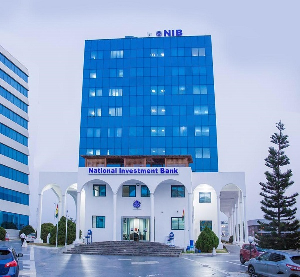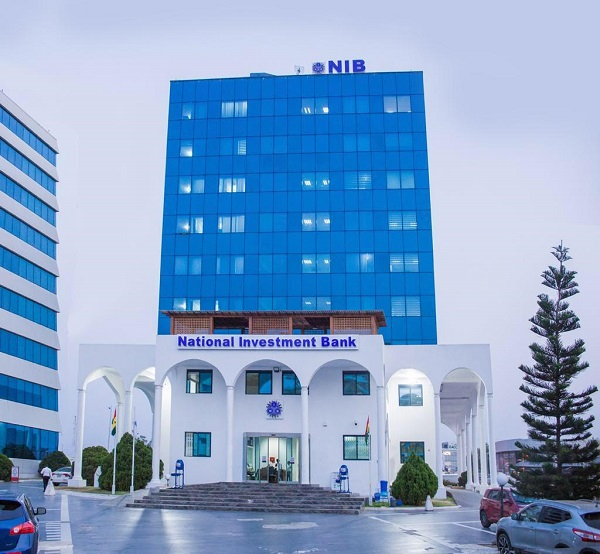 Government to list the National Investment Bank on the GSE
Government to list the National Investment Bank on the GSE
On July 24, 2025, during the Mid-Year Budget Review in Parliament, the Minister for Finance, Dr Cassiel Ato Forson, announced the transfer of GH¢500 million worth of government shares in Nestlé Ghana Limited to the National Investment Bank (NIB).
According to him, the move is part of a bold and comprehensive strategy to recapitalise the struggling state-owned bank and reposition it for long-term profitability and national development.
This GhanaWeb Business article sheds more light on the government’s decision to transfer its Nestlé shares to NIB.
Government’s capitalisation plan
The government’s capitalisation efforts form part of a broader strategy to rescue NIB from collapse and restore the bank’s financial stability.
The total support package for NIB includes:
• GH¢450 million in cash injection
• GH¢1.5 billion in marketable government bonds
• GH¢500 million equity stake in Nestlé Ghana
These combined interventions have had a significant impact. According to Dr Forson, the government’s actions have preserved GH¢6.4 billion in depositors’ funds and safeguarded over 900 direct jobs at the bank.
Details of the Injected Amount
Prior to the intervention, NIB was in a dire financial state. As of the end of 2024, its Capital Adequacy Ratio (CAR), a key measure of a bank’s financial health, stood at –53.13%.
However, by May 2025, following the capital and asset injection, the CAR had improved dramatically to +23%, exceeding the Bank of Ghana’s regulatory benchmark.
This recovery indicates that the bank is now solvent and better positioned to operate sustainably within Ghana’s financial sector.
Government’s bigger picture
The government’s vision for NIB extends beyond short-term solvency. Its aim is to reposition the bank as a robust development finance institution capable of supporting Ghana’s industrialisation and agricultural transformation.
With a revitalised balance sheet and strong capital base, NIB is expected to provide long-term credit to strategic sectors of the economy, playing a pivotal role in national development.
This marks a shift from the conventional commercial banking model and aligns NIB with development finance institutions globally, which support medium- to large-scale projects with long-term economic impact.
Impact of the transfer
With NIB now fully capitalised, the bank has the potential to be listed on the Ghana Stock Exchange (GSE).
A public listing would enable NIB to benefit from:
• Greater transparency
• Improved governance structures
• Broader ownership by institutional investors and ordinary Ghanaians
The planned listing is expected to strengthen investor confidence in state-owned enterprises, deepen Ghana’s capital market, and create opportunities for Ghanaians to participate in the ownership of a revitalised development bank.
Conclusion
The government’s decision to transfer GH¢500 million in Nestlé Ghana shares to NIB is a strategic move aimed at securing both immediate financial stability and long-term economic transformation.
By restoring the financial health of a key state-owned bank, preparing it for a public listing, and repositioning it to support Ghana’s development agenda, the government is signaling a new era in the management of public financial institutions.
This intervention also reflects a shift toward leveraging capital markets to empower state enterprises, expand access to finance, and foster inclusive economic growth.
DR/MA
How Virtual Reality is enhancing business and customer experience
